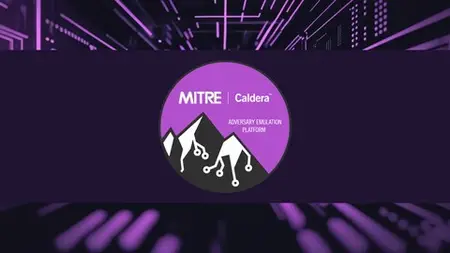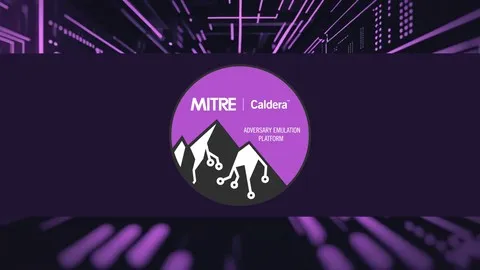Master Caldera Adversary Simulation
Published 6/2025
MP4 | Video: h264, 1920x1080 | Audio: AAC, 44.1 KHz
Language: English | Size: 1.33 GB | Duration: 3h 6m
Published 6/2025
MP4 | Video: h264, 1920x1080 | Audio: AAC, 44.1 KHz
Language: English | Size: 1.33 GB | Duration: 3h 6m
Learn in a practical way how to emulate true hacker groups using Caldera.
What you'll learn
Define Mitre ATT&CK concepts
Define the diference between Pentest and Threat Actor Simulation
Define the terminology and structure of Caldera
Run different Threat Actors Simulations
Create Attackers Commands Implementation
Obfuscate and Encode Payloads
Research and Monitoring Threat Actors Profiles
Practical tools to Map and Monitor Adversaries Behaviors
Create Adversaries Profiles
Generate a Final Report
Requirements
Basic Cybersecurity concepts knowledge
Basic Operating Systems knowledge
Description
In this course, you will explore Threat Actor Behavior Simulation using the powerful open-source tool, Caldera. You’ll learn how to set up a virtual lab, simulate real-world cyber threats in an automated way, and understand techniques used by adversaries. The course also covers how to create reports and analyze attacker profiles to improve your defense strategy.At first sight, you may think it is very complex but, this course aims to show you how easy it can be.This training is ideal for both beginners and experienced cybersecurity professionals. You will be guided step-by-step through identifying relevant threat actors and continuously updating your simulations to reflect the evolving threat landscape. It’s a practical and hands-on approach that goes beyond traditional penetration testing.All tools used are free and open-source, making them accessible to anyone interested in improving their cybersecurity skills. The course is structured to be easy to follow while still offering valuable insights for more advanced learners.I am committed to keeping the course current by adding new content and updates as Caldera evolves. These updates, including bonus material, are available at no additional cost.If you have any questions, suggestions, or feedback, feel free to reach out. I’m always open to connecting and helping you get the most out of this course.
Overview
Section 1: Introduction
Lecture 1 Introduction
Lecture 2 MITRE ATT&CK Concepts
Section 2: Test Environment Instalation
Lecture 3 Lab Presentation
Lecture 4 Debian Linux Instalation
Lecture 5 Windows Server Instalation
Lecture 6 Active Directory and DNS Instalation
Lecture 7 Caldera Instalation
Lecture 8 Network Configuration
Section 3: Caldera's Concepts
Lecture 9 Agents
Lecture 10 Activities
Lecture 11 Payloads
Lecture 12 Facts and Fact Sources
Lecture 13 Parsers
Lecture 14 Adversary
Lecture 15 Operations
Lecture 16 Differences between Users
Section 4: Testing the features and Running Simulations
Lecture 17 Testing Operations
Lecture 18 Testing Defenders
Lecture 19 Testing Payloads
Lecture 20 Testing Reports
Section 5: Threat Actor Mapping
Lecture 21 Mapping and Monitoring
Lecture 22 Mapping Tools
Lecture 23 Creating our First Actor Profile
Lecture 24 Simulation Results
Section 6: Ending The Course
Lecture 25 Final Message
Cybersecurity students and professionals who want to know more about Threat Simulation.



